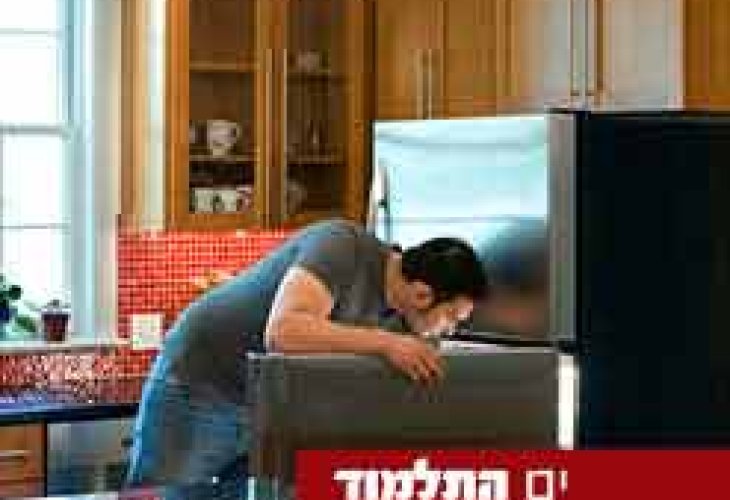Opening a Refrigerator on Shabbat - Is It Forbidden Work?
A closer look at the halachic considerations of using a refrigerator on the day of rest

The Gemara in Tractate Bava Kamma (60a) explains that it's possible for a person to perform a certain action that would make them liable for violating Shabbat, yet be exempt from laws of damages. For example: a person who fans a flame, which without the help of the wind would not have grown, intensified, or burned his neighbor's field - is exempt from damages, since his action alone does not constitute fanning the flame, but merely assisting the wind. Therefore, this action is only considered indirect causation (grama), and in the laws of damages, one is not liable for indirect causation. However, one who does this on Shabbat is liable for "burning," because on Shabbat, the Torah prohibited "thoughtful work" (melechet machshevet).
To understand this concept of "thoughtful work," we can use the example the Gemara brings regarding a person who winnows wheat on Shabbat and the wind separates the chaff from the grain. This winnower is liable for violating a Torah prohibition even though it's the wind that separates the chaff from the grain. Rabbeinu Chananel (Shabbat 120b, s.v. "Amar Rav Yehuda") explains that since through his actions a work that he intends and desires is accomplished, he transgresses a Torah prohibition.
A well-known halachic question is whether on Shabbat it is permissible to open the door of an electric refrigerator when the motor is not running. As is known, the refrigerator motor is activated by a thermostat, which is responsible for turning the motor on and off according to the cold and heat conditions prevailing in the refrigerator. Since opening the refrigerator door allows heat to enter, causing the motor to activate, we must clarify whether it is permissible to open the refrigerator on Shabbat when the motor is not running.
The author of "Chelkat Yaakov" (Responsa, Orach Chaim 76-77) ruled that on Shabbat it is forbidden to open the refrigerator door when its motor is not running. This is because the person opening the refrigerator door causes warm air to enter, which will activate the motor, thereby making them a partner in operating the refrigerator. Although they are not operating it directly, this constitutes "thoughtful work," which is defined as prohibiting an action done with the intent and desire that it will result in a forbidden labor. It is clear to everyone that a person opening a refrigerator door wants the motor to activate when warm air enters, in order to preserve the products inside. Therefore, on Shabbat one should not open the refrigerator door unless the motor is already running, as then opening the door will not cause the motor to activate.
However, Rabbi Shlomo Zalman Auerbach zt"l ("Minchat Shlomo" Part 1, Chapter 10) disagrees and elaborates at length on why it is initially permissible to open the refrigerator door on Shabbat even when the motor is not running. One of his reasons is that the act of "winnowing" cannot be compared to opening a refrigerator. The winnower performs an act of winnowing, and the wind directly sorts the chaff from the grain as a direct continuation of his action. In contrast, after opening the refrigerator door, several actions must occur in sequence to activate the motor: the heat causes gas expansion, which inflates the bellows, which connects the current. Thus, the motor is not activated immediately upon opening the refrigerator door. It is therefore clear that activating the motor cannot be attributed to the person who opened the refrigerator door.
In conclusion, it is worth noting that to avoid any doubt, some have followed the advice of the author of "Minchat Yitzchak" (Responsa, Part 2, Chapter 16) to connect the refrigerator to a timer. Thus, when the refrigerator is completely disconnected from the electrical current, there is no problem opening the refrigerator door, since the motor is unable to operate while disconnected from the current (see also "Shmirat Shabbat K'hilchata" Chapter 10, Section 12).

